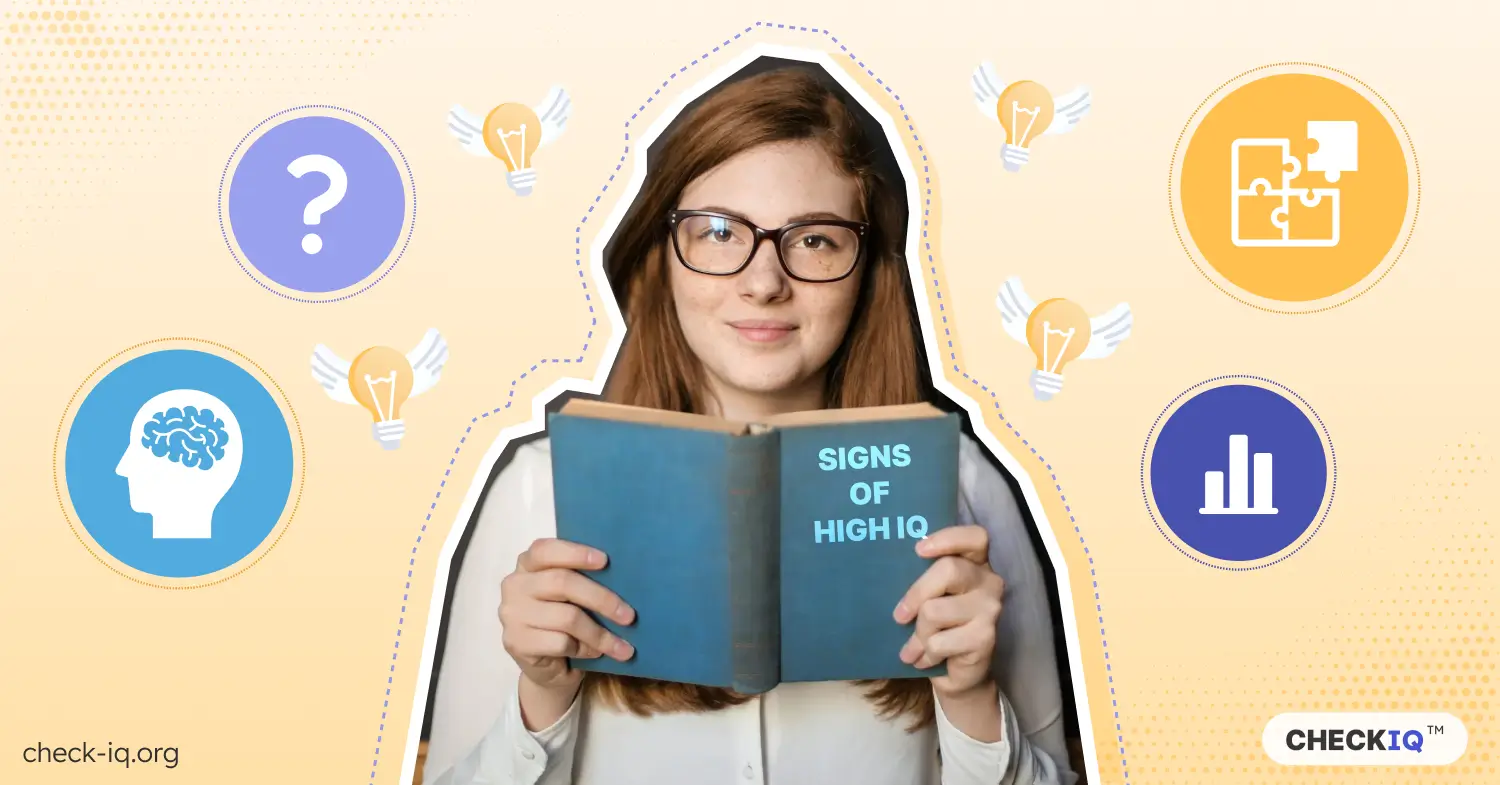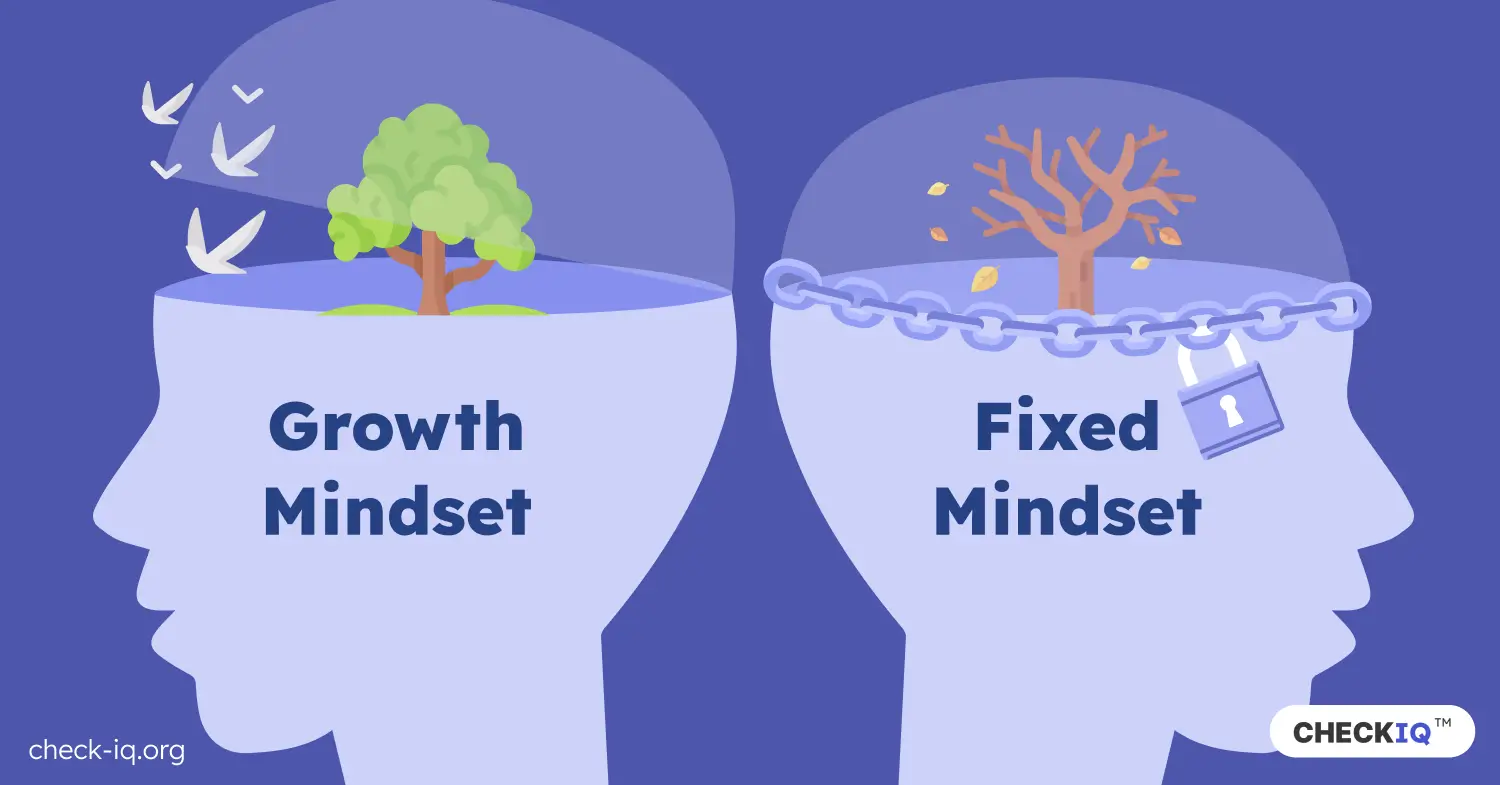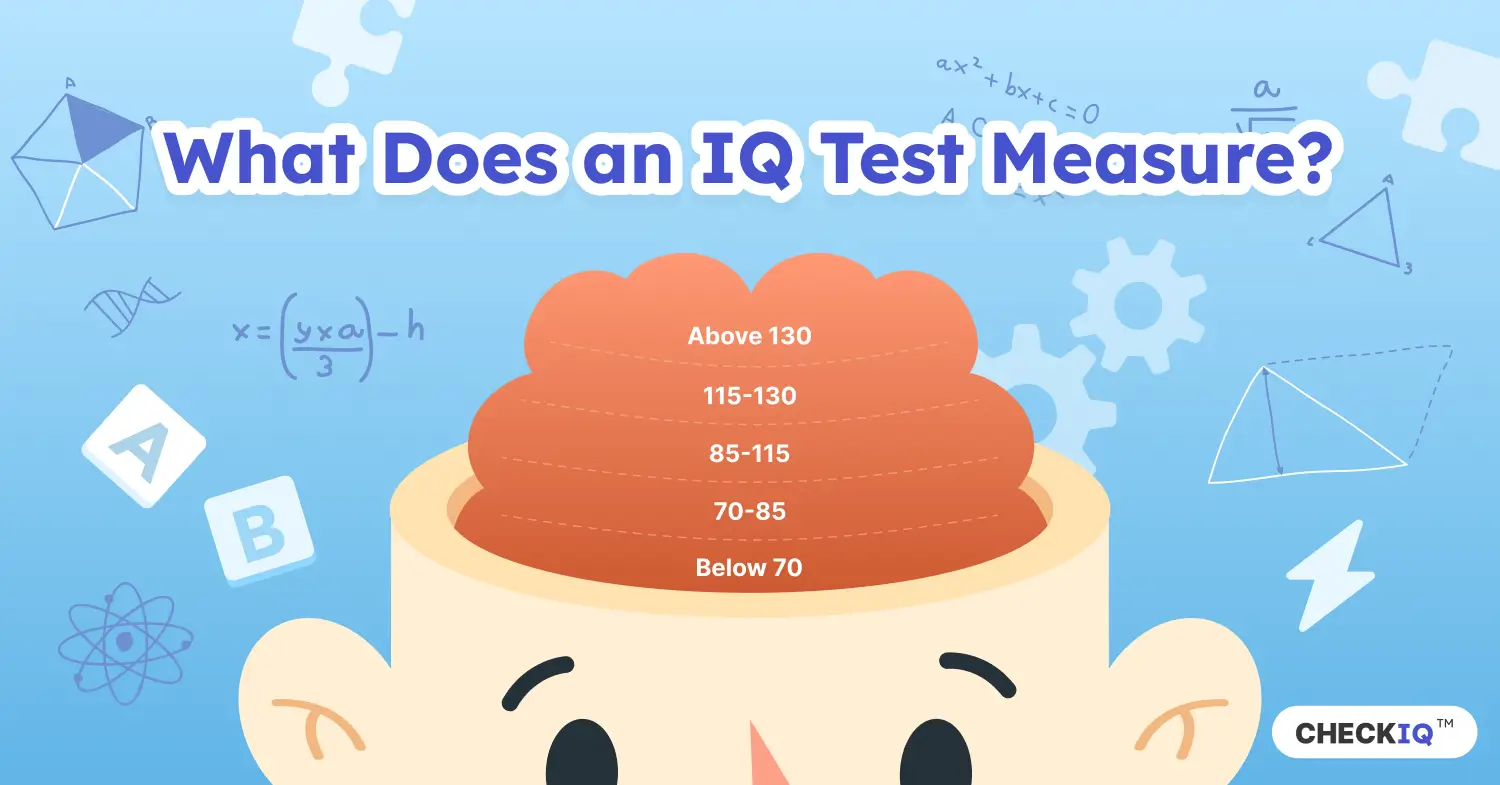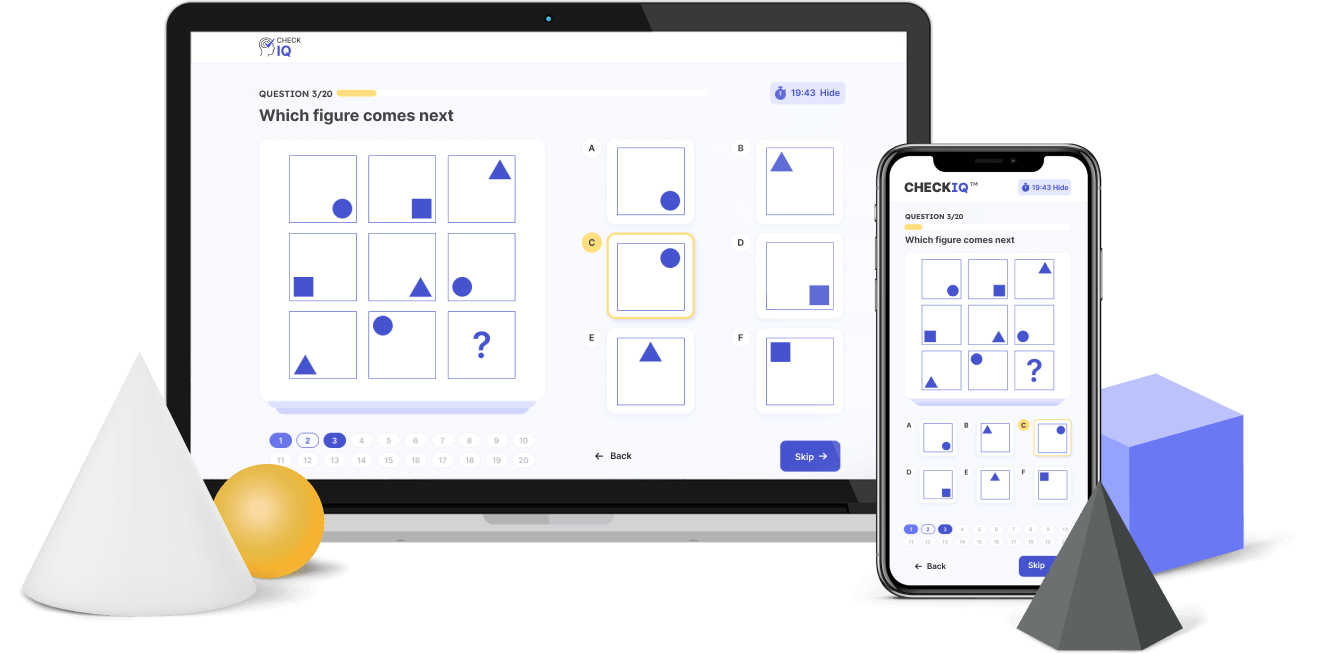Do you feel that you’re smarter than average? Or conversely, do you underestimate your own intelligence?
While taking an IQ test is one way to find out, it's not the only method. In fact, your behavior can reveal a lot about your intelligence level.
In today’s article, after defining what intelligence is about, we’ll explore 20 common signs of a high-IQ individual.
What Are the Different Types of Intelligence?
When people describe someone as intelligent, they often refer to book learning, academic skills, or test-taking abilities. However, intelligence goes far beyond these boundaries. It's not just about being good at school; it's about understanding our world in many different ways.
Intelligence includes many skills such as being able to reason, plan, solve problems, think in abstract ways, understand complex ideas, learn quickly, and even learn from experience. This broader view of intelligence is essential because it helps us recognize the many ways people can be smart.
Researchers have identified different types of intelligence, each important in its own way. These include:
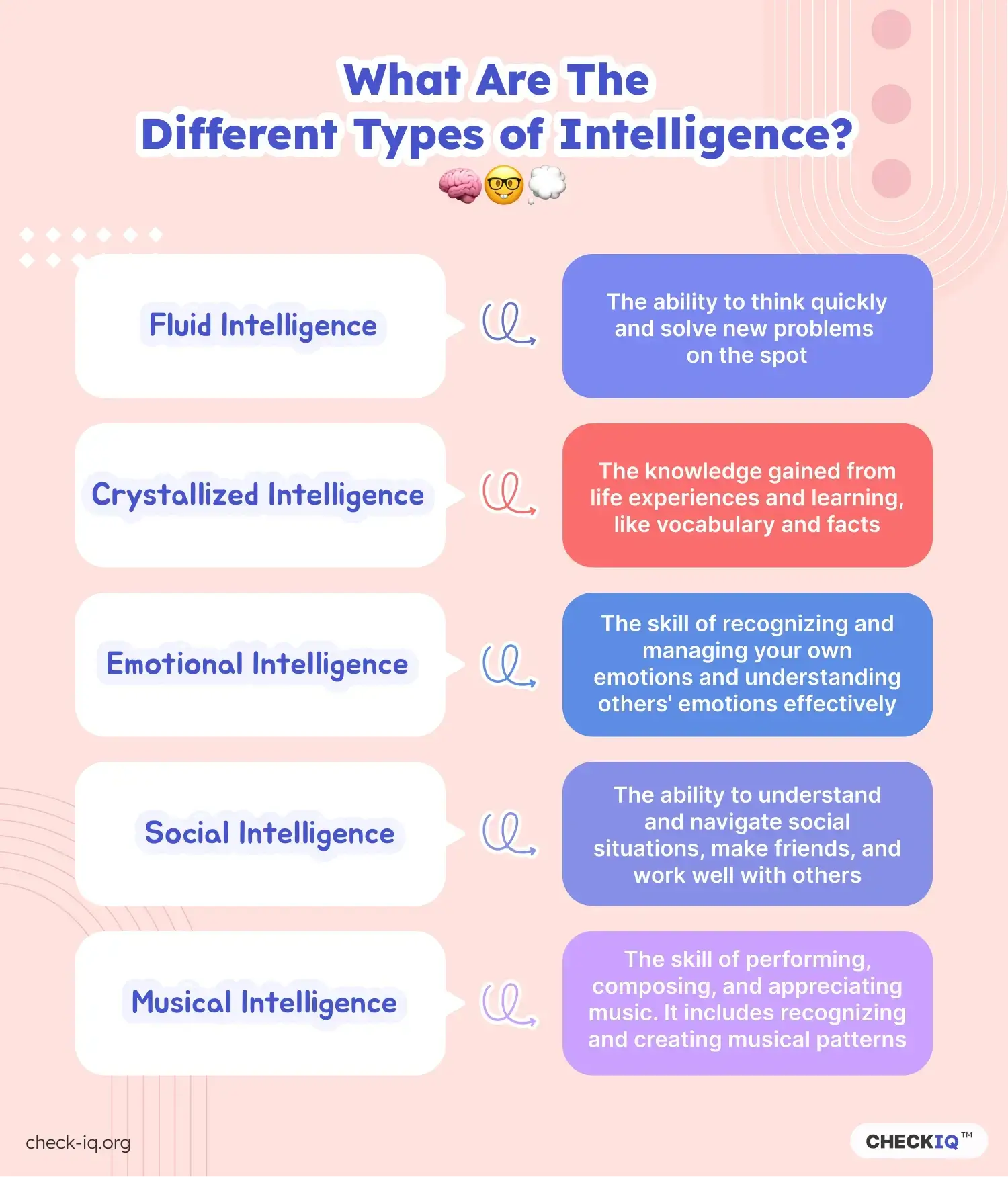
- Fluid intelligence: This is your ability to think quickly and solve new problems on the spot.
- Crystallized intelligence: This includes all the knowledge you’ve gathered over time, like vocabulary and facts from books and experiences.
- Emotional intelligence: This is your ability to understand and manage emotions in yourself and others. Coined by psychologist Daniel Goleman, this type of intelligence helps you control your behavior and build good relationships.
- Social intelligence: This is your ability to understand and navigate social situations, make friends, and work well with others. It’s closely related to emotional intelligence but focuses more on social interactions.
- Musical intelligence: This involves your skill in performing, composing, and appreciating music. It includes recognizing and creating musical patterns.
Note that this is not the only classification system. Howard Gardner, a psychologist, also proposed a broader view called the theory of multiple intelligences. He identified specific areas of intelligence:
- Linguistic intelligence: Skill with words and language.
- Logical-mathematical intelligence: Good at reasoning and solving math problems.
- Spatial intelligence: Ability to visualize and manipulate objects in space.
- Bodily-kinesthetic intelligence: Using your body skillfully, like in sports or dancing.
- Interpersonal intelligence: Understanding and interacting well with others.
- Intrapersonal intelligence: Understanding yourself, your feelings, and motivations.
- Naturalistic intelligence: Recognizing and categorizing natural things like plants and animals.
Each type of intelligence helps us in different areas of life, showing the many ways people can be smart.
Now that you understand what intelligence is about, let’s go over 20 signs that are typical of high-IQ people. Here we go!
A reliable 100% adaptive online IQ Test. Get your IQ score immediately.
Start My IQ Test
20 Signs You Have a High IQ
High intelligence can manifest in various ways, some subtler than others. Here are 20 signs that you might have an above-average IQ:
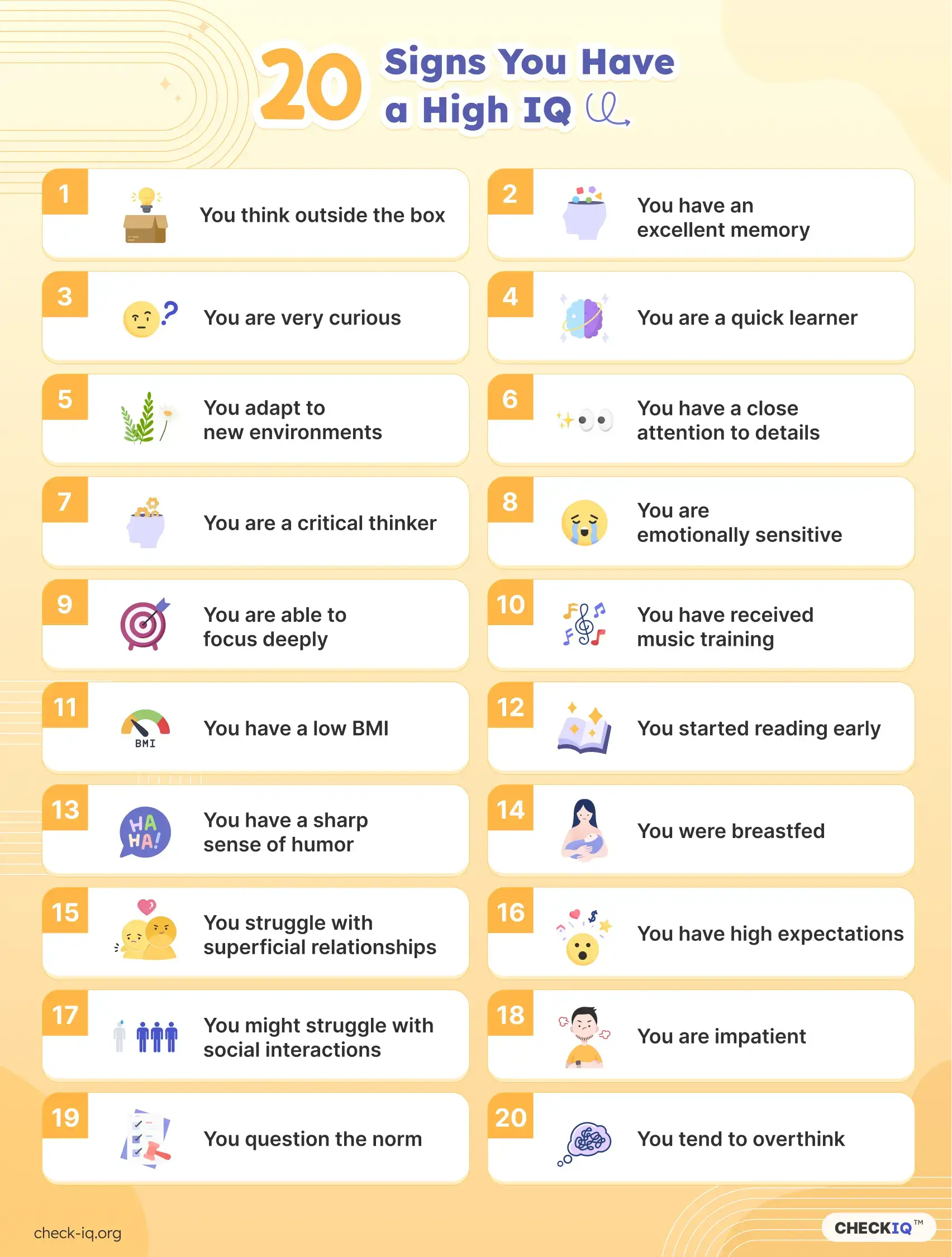
1. You think outside the box
A clear sign of high intelligence is the ability to solve complex problems efficiently and creatively. Individuals with high IQs don't just follow conventional methods. They think outside the box.
If you think outside the box, you often find innovative solutions that others might overlook.
2. You have an excellent memory
People with a high IQ are known for their excellent memory and the ability to recall information accurately. Research from Virginia Tech has shown that people with higher intelligence are particularly adept at forming connections quickly and maintaining them over time.
This ability is essential for effectively remembering and utilizing information. As someone with a high IQ, you excel at "connecting the dots," seamlessly linking seemingly unrelated pieces of knowledge to create a cohesive understanding.
3. You are very curious
A curious and open mindset is another hallmark of high intelligence. People with high IQ are always eager to learn, explore, and try new things.
Supporting this observation, research published in the journal "Learning and Individual Differences" shows that individuals with higher fluid intelligence tend to find a wide range of subjects, including art and poetry, more interesting.
4. You are a quick learner
Not a surprising one! Highly intelligent people can pick up new skills, languages, or concepts rapidly.
So, if you are a quick learner who understands complex information or procedures faster than the average person, you likely have an above-average IQ. Your ability to learn quickly reflects your broad interests and creativity.
5. You adapt to new environments
Adaptability refers to your ability to adjust to new situations or environments swiftly and effectively. People with high IQ excel in unfamiliar situations. Thus, they can use their cognitive abilities to go through changes seamlessly.
6. You have a close attention to details
A nuanced understanding of the world often begins with keen observation. People with a high IQ often notice details others might miss. They can understand and interact with their environment on a deeper level. A small error in a report won’t go unnoticed!
7. You are a critical thinker
By critical thinking, I mean the ability to look at information objectively and make well-reasoned decisions.
As a highly intelligent person, you excel in this area. You steer clear of overly emotional reasoning. You prefer to question assumptions and evaluate evidence before making decisions.
8. You are emotionally sensitive
Intelligent individuals are often very aware of their emotions and the emotions of others.
This can make you particularly sensitive to criticism, conflicts, and other social stimuli. This sensitivity can sometimes be perceived as a weakness or over-reactivity. But well, on the other hand, as research shows, you tend to have greater empathy. You are the kind of person who can easily notice a friend is upset by their tone of voice on the phone.
9. You are able to focus deeply
The ability to concentrate on tasks for extended periods, especially complex or challenging ones, is another sign of high intelligence. Research has shown that highly intelligent people are able to ignore distractions. This focus helps you dive deep into subjects and master them.
10. You have received music training
People with high verbal intelligence often have a history of music lessons. Studies, such as one conducted by Schellenberg (2004), have found that music training in children is linked to increased verbal intelligence. This suggests that the skills developed through learning music correlate with linguistic abilities.
11. You have a low BMI
Research suggests that people who are thin or have a lower body mass index (BMI) tend to score higher on intelligence tests. Interesting, right? The reasons for this are still being explored but they could involve complex interactions between genetics, metabolism, and lifestyle choices.
12. You started reading early
Early reading is another sign of high intelligence. It is associated with children who begin reading at a young age. These individuals often display higher verbal intelligence later in life. This early exposure to language and narrative thought can lay a strong foundation for advanced cognitive skills.
13. You have a sharp sense of humor
We couldn’t miss that! Humor, particularly an appreciation for black humor, has been linked to higher intelligence. Research conducted by Ulrike Willinger at the Medical University of Vienna found that individuals who enjoyed and understood dark humor scored higher in both verbal and non-verbal IQ tests. Black humor often involves a sophisticated understanding of irony and the absurdity of life's darker aspects. This is why an appreciation for it is believed to be associated with higher cognitive abilities.
14. You were breastfed
Interestingly, being breastfed as an infant has also been associated with higher IQ. The nutrients in breast milk and the physical and emotional bonding during breastfeeding might help explain this connection.
15. You struggle with superficial relationships
As someone with a high IQ, you may face distinct challenges in romantic relationships. The ability to understand and process complex ideas can sometimes make it difficult to connect with others on a more casual level.
As such, while you may seek meaningful connections, you might find superficial interactions frustrating, especially in relationships lacking emotional depth and intellectual stimulation.
16. You have high expectations
High IQ individuals often have high expectations of themselves and others.
This can lead you to frustration when those expectations are not met. This can also result in a paradox where despite your capabilities, you might struggle with feelings of inadequacy or fear of failure. This trait can also strain personal and professional relationships. However, your capacity for introspection and understanding can also be a tremendous asset. Because it helps you create strong, deeply connected relationships built on mutual respect and intellectual compatibility.
17. You might struggle with social interactions
Psychological issues, including anxiety and social isolation, are not uncommon among the highly intelligent. This is one of the typical disadvantages of having a high IQ.
Your deep and intense manner of thinking can lead to an overwhelming sense of responsibility. Or even to a heightened state of awareness about the world's problems. This can indeed be mentally exhausting to you.
18. You are impatient
Those with high IQs may quickly grasp concepts and solve problems.
This leads you to boredom and impatience with routine tasks or slow-moving processes. Your impatience can then result in a lack of engagement or commitment to certain tasks or roles.
19. You question the norm
Individuals with high IQs often exhibit nonconformist attitudes and behaviors.
If you find yourself questioning established norms and authority, you might be a high-IQ individual. From one perspective, this can be seen as a rebellious or disruptive act, particularly in structured environments like schools or traditional workplaces.
20. You tend to overthink
High intelligence can lead to overthinking, also known as analysis paralysis. This occurs when you spend too much time considering all possible scenarios and implications, which can negatively impact your decision-making skills. Additionally, this tendency can lead to stress and indecision.
Signs of High IQ That Have Been Debunked
There are some popular ideas about high IQ that research just doesn't support. We'll debunk a few of these myths to give you a clearer picture of what intelligence really looks like.
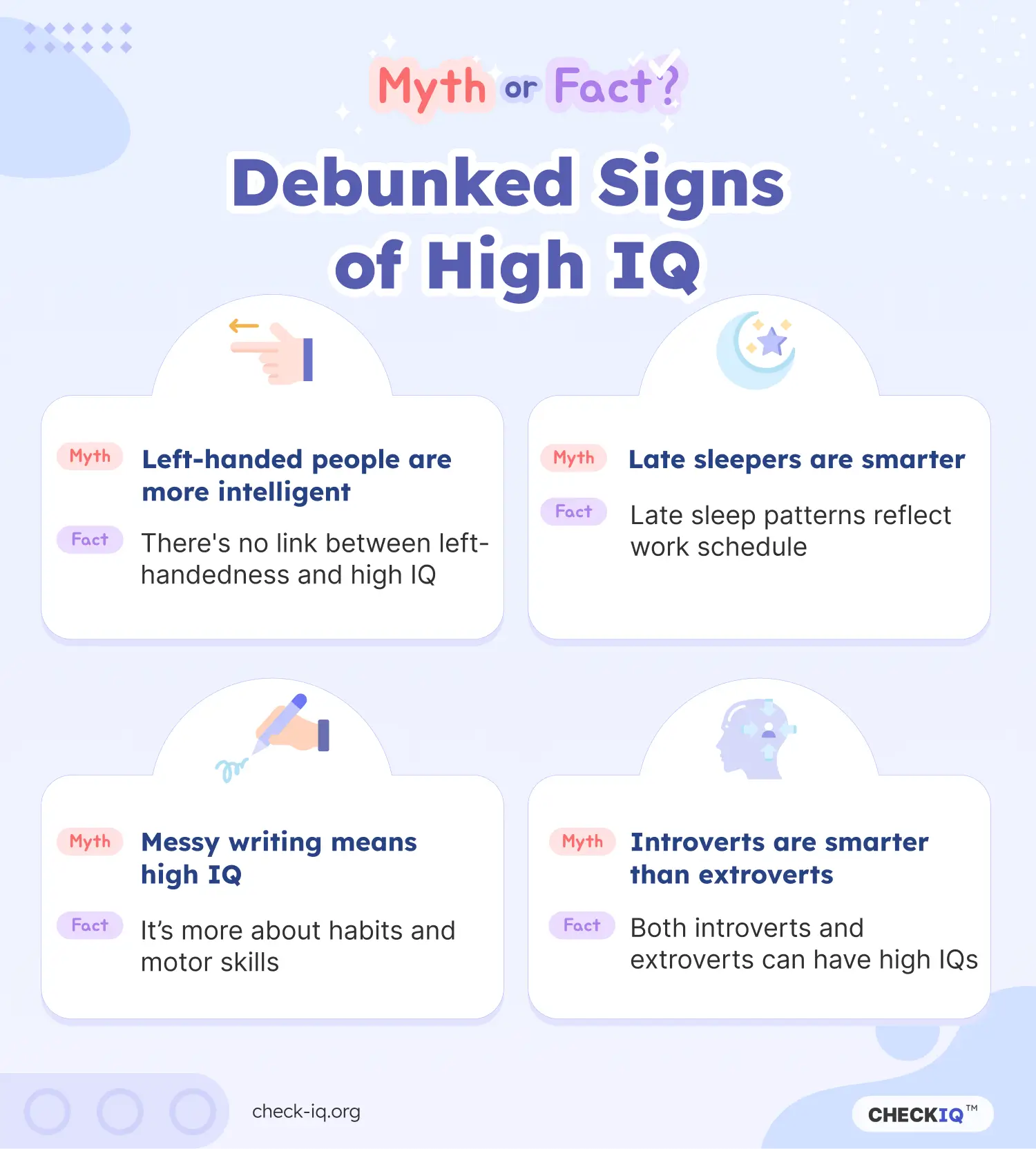
Is being left-handed a sign of high IQ?
While handedness has been explored for its potential link to intelligence, the notion that left-handed people are smarter than right-handers is largely a myth. Contrary to popular belief, research has shown no significant connection between left-handedness and higher intelligence. In fact, according to BBC Science Focus, a comprehensive study by Dutch researchers, analyzing data from over half a million people, found no correlation between handedness and verbal ability and even indicated a small spatial ability advantage in right-handers.
Is sleeping late at night a sign of high IQ?
If you're a night owl who prefers staying up late and waking up later, you might think this indicates a higher IQ – a popular belief. On one hand, research has found some association between higher IQ and later sleep patterns. However, the connection is not that straightforward. A comprehensive study involving Mensa members revealed that their later sleep timings during workdays were solely due to later work start times, not biological differences. Essentially, if you find yourself waking up late, it might just reflect your work schedule rather than an inherent intellectual advantage.
Is having a messy handwriting a sign of high IQ?
The myth that smart people tend to have messy handwriting is anecdotal at best. At least it is not backed by any research. Handwriting style does not correlate with intelligence. Rather, it reflects habits and motor skills.
Are introverts smarter than extraverts?
There's no evidence to suggest introverts are inherently more intelligent. Extroverts might perform well in social intelligence tests. Meanwhile, introverts might excel in tasks requiring deep thinking. Research shows both personalities have the potential for high IQs.
FAQs About the Signs of High IQ
How can intelligence be accurately measured?
Intelligence quotient tests are one of the most common methods to measure cognitive abilities. These intelligence tests are designed to assess multiple aspects of intelligence, including memory, problem-solving skills, and sometimes verbal intelligence. However, remember that intelligence has various dimensions. Therefore, no single test can capture its entirety. A combination of different tests and continuous learning experiences offers a broader understanding of an individual's cognitive capabilities.
Can high IQ guarantee success?
While a high IQ can provide a significant advantage in many areas of life, it doesn't guarantee success on its own. Success is a blend of intelligence, emotional intelligence, hard work, resilience, and sometimes, let’s accept it, a bit of luck. This explains why rich people aren't necessarily smarter.
High achievers know that problem-solving skills need to be paired with EQ to handle personal and work relationships effectively. Ultimately, success is not just about IQ. It's more about how well you use both your IQ and EQ to overcome challenges and take advantage of opportunities.

